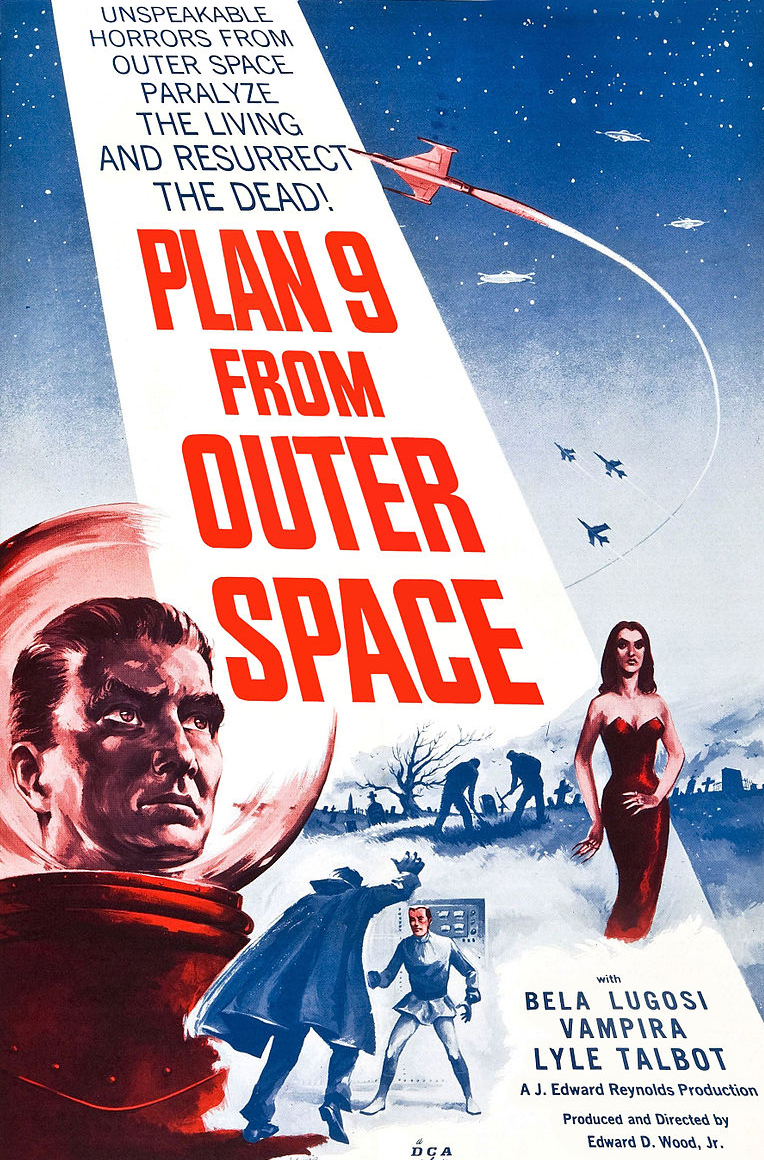
KANSAS CITY, Kan. (BP) — Ever hear of “Mystery Science Theater 3000”? It was a 1990s weekly TV series (recently repeated on the Comet network) featuring a man marooned in space with only his robot pals to keep him company.
To further his distress, each week he was forced to watch old B-movies (B, as in baaad). So we see our isolated hero and the two ‘bots in silhouette viewing the likes of “The Day the Earth Froze” and “The Brain That Wouldn’t Die,” while making snide, occasionally hysterical remarks concerning the quality (well, lack of quality) of the films.
The show itself was better in concept than in its execution, but I confess, I’ve been amused watching the MST3000 team skewer the likes of “Gorgo,” “Moon Zero Two” and “The Leech Woman.”
Lest you think this is an endorsement of MST 3000, keep in mind that even though you’d get a few chuckles from each episode, you’d still be watching a movie lacking much technical or artistic value. I’d rather you were viewing a good movie than a poor one while listening to jokesters ridicule the work of others.
As major studios produced such classics as “Ben Hur,” “All About Eve” and “12 O’Clock High,” some independent wannabe filmmakers in the ’40s and ’50s begat the likes of “Robot Monster” and “First Spaceship on Venus,” F-grade movies that tested the belief that “no one sets out to make a bad movie.”
 But B-movies like “Laserblast” and “Teenage Caveman” are not made today. It’s just too difficult a process for unqualified moviemakers to get enough financing to make the type of films Roger Corman (“Night of the Cobra Woman”) and Ed Wood (“Bride of the Monster”) became famous for.
But B-movies like “Laserblast” and “Teenage Caveman” are not made today. It’s just too difficult a process for unqualified moviemakers to get enough financing to make the type of films Roger Corman (“Night of the Cobra Woman”) and Ed Wood (“Bride of the Monster”) became famous for.
That said, there are still bad movies being foisted on the public each year. Some of them even win awards.
Though the aesthetic merits of today’s “bad movies” are not of the bomb-quality of “Plan 9 from Outer Space” (considered the worst film of all time), this era’s “bad” movies are far more destructive because their content and themes seem bent on directing man away from the true creative source, our heavenly Father.
OK, the Hollywood industry’s goal was never about paying tribute to God. The intent was to entertain the masses — and make as many bucks off Shirley Temple and Lassie as possible. However, the secularist leanings of many a movie mogul has taken a decidedly more agnostic stance in recent times.
For example, in 2015, the rom/dram “I’ll See You in My Dreams” starred Blythe Danner, Mary Kay Place and Rhea Perlman as feisty old ladies looking to fill up their remaining years. Though not a B-movie, it does make my point that a misguided message in a well-constructed production can be far more destructive than incompetent filmmaking.
Christ’s name is abused several times in that production, with all the cast getting a chance to play cantankerous sexagenarians who swear. There’s occasional sex talk around a card table, and drinking to excess throughout. And though the writer attempts to portray the ladies as dimensional and “full of life,” for me, they came across as crude, self-centered and myopic.
The characters are bored, so because they have enough money they plan on taking a trip to Iceland. Why? They don’t know what else to do. It would never occur to them to find an outlet that serves others in need. Their lives would be far more complete if they sought ways to aid their fellow man instead of waiting for night to fall so they could sing karaoke at the local bar.
The movie’s theme — fill up your life while you can — addresses no true spiritual matter. Though entering the last season of their lives, none of the characters discuss or consider an afterlife. Really? You make a picture about people in the December of their years and none of your characters brings up the subject of the hereafter?
Life lessons can be gleaned from secular moviemakers and their medium, but we should be cautious of those who tutor without regard for biblical directives. The humanist who discounts spiritual fulfillment through Christ does not heed the biblical warning: “There is a way that appears to be right, but in the end it leads to death” (Proverbs 14:12 NIV).
The Bible is a guidepost that keeps us in harmony with the heavenly Father and with our fellow man. By studying Scripture, we gain an understanding of the nature of God. What’s more, knowing His Word will help us see through any hedonistic standards that creep into our daily lives, including those from nonreligious movie auteurs.
Sorry for what may have read as a sermon to the choir, with no preaching needed by me. But it never hurts to be reminded of the need to reverence God and study His Word.
As to today’s entertainment — even if it amuses, does the film you’ve just watched fail to uplift the culture or the soul of man? As the apostle Paul counseled in Ephesians 5:11, “Have no fellowship with the unfruitful works of darkness, but rather reprove them.”
















